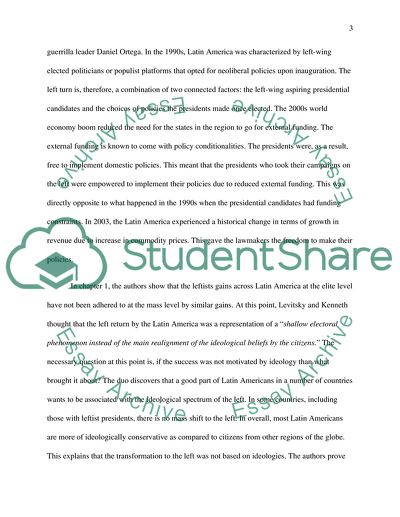Cite this document
(“What is behind the so-called reemergence of, or shift to the left in Essay”, n.d.)
What is behind the so-called reemergence of, or shift to the left in Essay. Retrieved from https://studentshare.org/social-science/1689099-what-is-behind-the-so-called-reemergence-of-or-shift-to-the-left-in-latin-america-to-what-extent-if-any-does-this-new-left-challenge-the-international-economic-system-promoted-by-the-us-and-washington-based-international-economic-institutions
What is behind the so-called reemergence of, or shift to the left in Essay. Retrieved from https://studentshare.org/social-science/1689099-what-is-behind-the-so-called-reemergence-of-or-shift-to-the-left-in-latin-america-to-what-extent-if-any-does-this-new-left-challenge-the-international-economic-system-promoted-by-the-us-and-washington-based-international-economic-institutions
(What Is Behind the so-Called Reemergence Of, or Shift to the Left in Essay)
What Is Behind the so-Called Reemergence Of, or Shift to the Left in Essay. https://studentshare.org/social-science/1689099-what-is-behind-the-so-called-reemergence-of-or-shift-to-the-left-in-latin-america-to-what-extent-if-any-does-this-new-left-challenge-the-international-economic-system-promoted-by-the-us-and-washington-based-international-economic-institutions.
What Is Behind the so-Called Reemergence Of, or Shift to the Left in Essay. https://studentshare.org/social-science/1689099-what-is-behind-the-so-called-reemergence-of-or-shift-to-the-left-in-latin-america-to-what-extent-if-any-does-this-new-left-challenge-the-international-economic-system-promoted-by-the-us-and-washington-based-international-economic-institutions.
“What Is Behind the so-Called Reemergence Of, or Shift to the Left in Essay”, n.d. https://studentshare.org/social-science/1689099-what-is-behind-the-so-called-reemergence-of-or-shift-to-the-left-in-latin-america-to-what-extent-if-any-does-this-new-left-challenge-the-international-economic-system-promoted-by-the-us-and-washington-based-international-economic-institutions.


